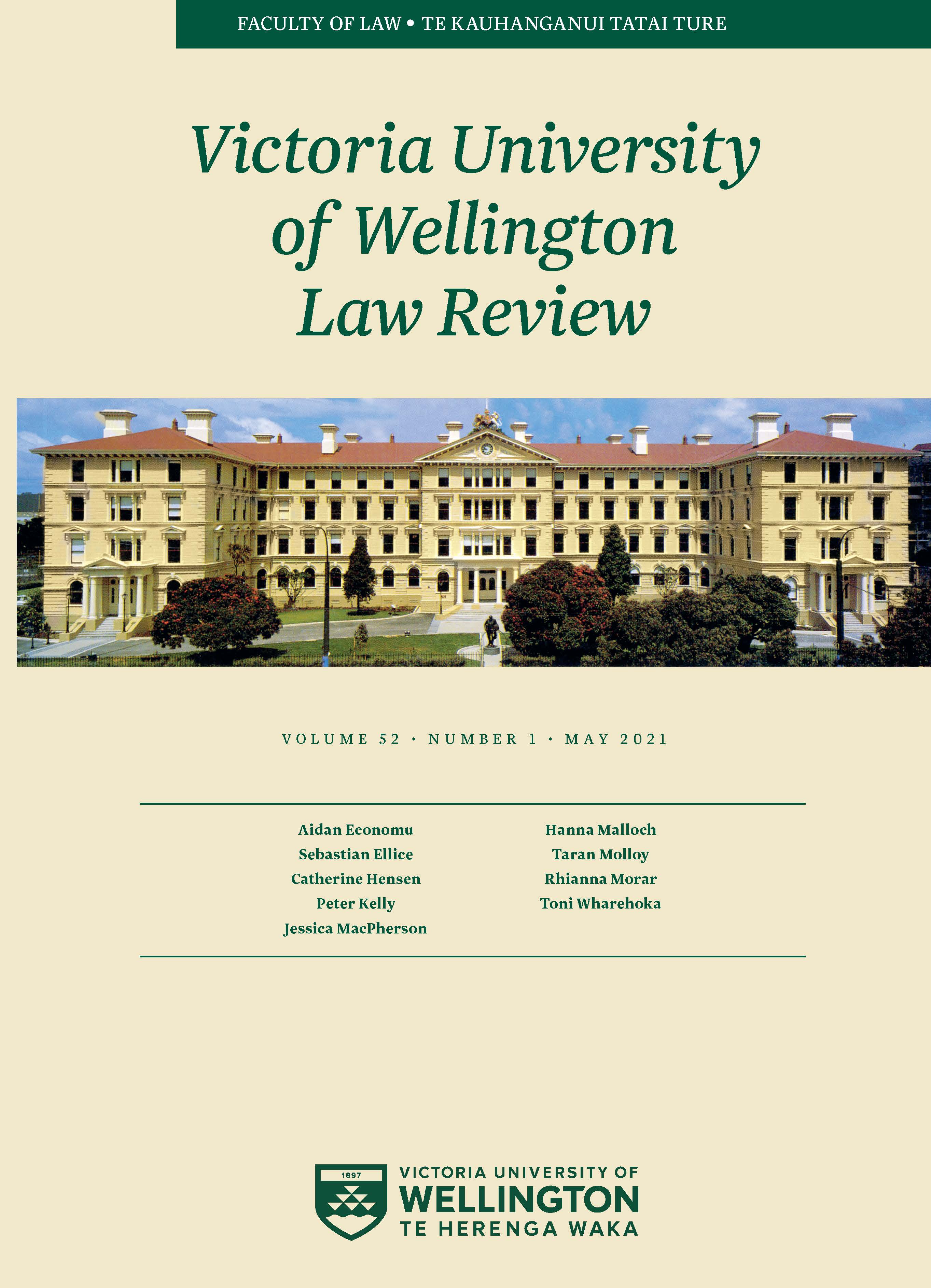Disability Rights and Compulsory Psychiatric Treatment: The Case for a Balanced Approach under the Mental Health (Compulsory Assessment and Treatment) Act 1992
DOI:
https://doi.org/10.26686/vuwlr.v52i1.6851Abstract
This article argues the New Zealand Government's current approach to compulsory psychiatric treatment is unjustifiable in a human rights context. Under s 59 of the Mental Health (Compulsory Assessment and Treatment) Act 1992, clinicians are empowered to administer compulsory psychiatric treatment to individuals without, or contrary to, their consent. This article analyses s 59, and its underlying justifications, in light of the New Zealand Government's commitments under the United Nations Convention on the Rights of Persons with Disabilities (UNCRPD). Further, it analyses the approach for compulsory psychiatric treatment advocated by the UNCRPD in light of Aotearoa New Zealand's mental health context to evaluate whether this approach would be more desirable than the current approach under s 59. The article then advocates for a more balanced approach to compulsory psychatric treatment which puts the rights of disabled individuals at the forefront and also ensures there are limits to these rights which are justifiable within a human rights context.
Downloads
Downloads
Published
How to Cite
Issue
Section
License
Authors retain copyright in their work published in the Victoria University of Wellington Law Review.


